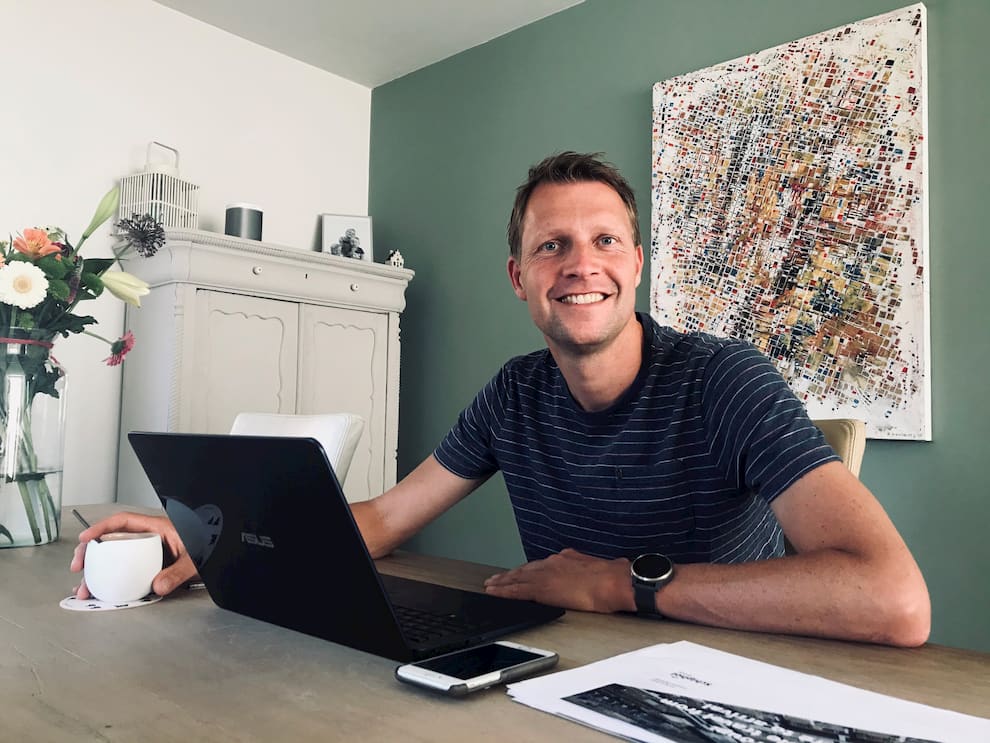The passenger experience begins long before a traveller boards an aircraft. And every step of that journey – from check-in to security to dwell time to luggage reclaim – has an impact on a traveller’s opinion about that experience. Joost Koning, Business Partner Airlines, and his colleagues focus on making sure the passenger experience is as optimal as it can be.

Published on: 3 June 2020
Joost and his three colleagues collaborate closely with Station Managers from almost 100 different airlines to ensure that Schiphol operates at peak efficiency. They also work with teams like Route & Business Development (RBD) and Traffic Analysis & Forecasting (TAF) to form a complete picture of what airlines need and what Schiphol can expect.
‘Of course, that includes managing and solving the day-to-day operational issues that airlines encounter, but it also means looking into the future and examining mid-term developments, both for airlines and for Schiphol,’ Joost explains. ‘Part of optimising operations is making sure that, as things develop, Schiphol is ready to respond. When airlines start using a larger aircraft, we adjust to accommodate more passengers, so we can preserve a good On Time Performance and a good customer experience. And when Schiphol plans a new pier, terminal or other projects, it is essential to involve airlines in the discussion of what the greatest needs are.’
The first signs of change
In the past few months, those “greatest needs” – for airlines, handlers and airports – have completely aligned. The entire industry is exploring ways to safely and strategically begin the recovery process. And as always, the Business Partners at Schiphol are in close communication with airlines and other teams at Schiphol to ensure that operations resume in a way that focuses on smooth processes and passenger wellbeing.
‘We’re still operating Core Schiphol, a scaled-down version of operations with only two open piers. But we’re beginning to see additional flights within Europe, and we expect even more flights in June,’ Joost says. ‘So we’re making plans to expand Core Schiphol with one additional pier. From there, it will be important to closely track flight and passenger movements in the summer months, and gradually reopen gates, piers and facilities as they are needed to accommodate travellers and maintain distancing guidelines.’
A new modus operandi
Of course, Joost and his colleagues are responsible for determining – and communicating – all of the new measures that will be in place for travellers and airlines. They have developed a set of protocols to ensure that Schiphol remains compliant with the regulations to prevent the spread of coronavirus. From cleaning protocols to hand sanitizer dispensers to floor markings and signage to new procedures, the protocols outline all the ways that airport operations will change to ensure passenger safety. ‘We are responsible for making sure that passengers feel safe to fly again,’ Joost says, ‘and we take that responsibility very seriously.’
But the responsibility is shared. Airlines will also be required to follow specific guidelines, cleaning and sanitation measures. ‘And that means longer ground times,’ continues Joost. ‘Many small, point-to-point airlines are accustomed to a ground time of around 40 minutes or less. But the new reality is going to be longer. We’re doing our best to both manage the airlines expectations and also enforce these crucial standards.’ In addition, he says, passengers must also take responsibility for their role. Following guidelines and accepting new protocols will be essential.
A silver lining
Despite all of the challenges that the coronavirus has created, Joost believes that something positive may also come from it. In enforcing the regulations that will help prevent the spread of the virus, there is the opportunity to innovate and transform the travel experience. ‘We’re already seeing advancements across the board,’ Joost says. ‘Airlines are developing new boarding procedures and improving their online check-in. Perhaps facial recognition technology will become a new standard for security checks. Passengers may be given a ‘check-in time slot’, so that their check-in can be carefully planned and queues can be avoided. It’s a time for airlines and airports to be creative. Because the faster we can develop reliable solutions, the faster we can regain passenger confidence and begin to rebuild our industry.’
And perhaps most significantly of all, according to Joost, is how much closer and more aligned Schiphol is with airlines. ‘We’ve always worked closely together, but now, it’s more important than ever to collaborate. Airlines, airports, passengers and operators all have a role to play in our systematic and strategic recovery. It will take a long time, and many of the processes and procedures will be different. But we’re already beginning the recovery journey, and we’ll all be taking it together.’